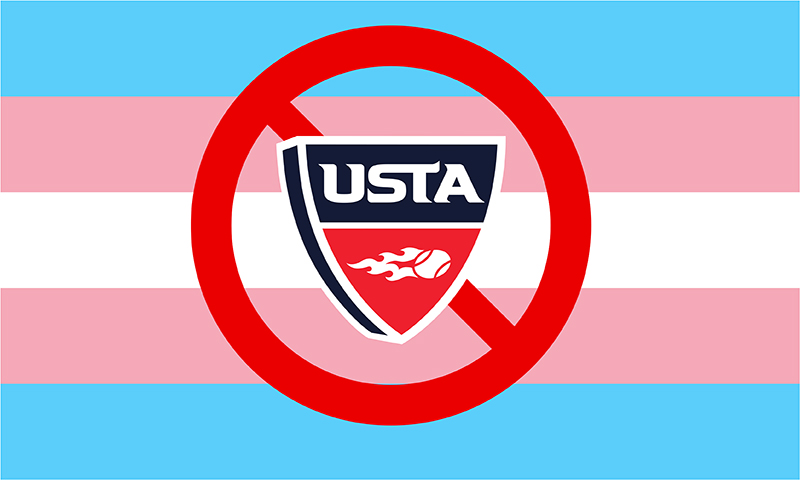Tennessee’s “Slate of Hate” features 11 bills targeting LGBTQ people
Lawmakers are expected to take up at least 9 of 11 bills targeting transgender youth and same-sex couples.

LGBTQ advocates in Tennessee and nationwide are speaking out against 11 different bills that have been introduced in the Tennessee General Assembly this cycle, all of which target the LGBTQ community to some degree.
The bills include a ban on transgender athletes competing based on their gender identity; a bill (currently posing as a healthcare bill) that is expected to be gutted and replaced with language creating extremely strict standards for the use of, or prohibitions on certain types of, gender-affirming care; and a bill to outright prohibit transgender youth from accessing gender affirming care.
Lawmakers will also consider a bill that bars students from using restrooms matching their gender identity, but also allows cisgender students to sue if they are forced to share facilities or common spaces with transgender individuals.
That’s not all, as one bill would make it a crime for transgender people to use multi-user restrooms or facilities that match their gender identity, while another would require any establishment that has gender-neutral facilities or allows trans people to use those matching their gender identity to post a sign with offensive language informing customers or clients of their policy.
The “Slate of Hate” also includes a bill banning LGBTQ content from all public school curricula; a bill allowing students to “opt-out” of lessons including LGBTQ content if it offends their religious beliefs; a bill to allow state employees to exempt themselves from diversity or sensitivity training; and a bill that will be gutted and replaced with language opposing the recognition of same-sex marriages.
Last, but not least, the final bill would claim LGBTQ identity is a form of religion, and thus, cannot be recognized or affirmed by the state or its entities under the Establishment Clause of the First Amendment to the U.S. Constitution.
Next week, the State House of Representatives is expected to vote on the anti-trans athlete bill on Monday, March 22. If passed, the bill, which has already passed the State Senate, would then go to the governor to be signed into law.
The sign mandate bill is up for a vote in committee next Tuesday, and at least six other bills are being considered in subcommittee.
The bill to outright ban gender-affirming care is also scheduled to receive a committee vote later in the week.
Equality advocates, in conjunction with Freedom for All Americans and the Human Rights Campaign, held a virtual press conference to talk about the bills and urge their defeat.
Among those speaking included Dr. Kristin Rager, a Nashville-based pediatric and adolescent health specialist; Adam, a transgender child; and two mothers of transgender children in Tennessee.
Speaking to some of the bills that seek to restrict transgender restroom use, Adam, who is 14 and in the eight grade, recounted how he was forced to use the bathroom in the nurse’s office, the guidance office, or a locked faculty bathroom instead of being allowed to use the boys’ restroom.
“None of [the restrooms] were close to any of my classes and using them would just make me stand out and people would notice me being different, and it would just alienate me further,” Adam recounted. “So I resorted to not drinking anything during the day and holding it until I got home. Everybody goes to the bathroom. So why should it be more difficult for trans kids who already have enough to worry about?”
Adam’s mother, Amy, spoke to the bills that seek to limit access to affirming care, noting that their family has sought out people with expertise in transgender issues to assist Adam in his transition, and was incensed at what she called the “ignorance” of some lawmakers around transgender health issues.
“My husband has already said that if this bill becomes law, we will move out of Tennessee to a state that is accepting of trans people. But not everyone has that luxury,” she said. “So I really hope that none of these anti trans bills pass.”
Rager used her time to dispel myths about transgender health care, noting that physicians in Tennessee are not performing gender confirmation surgery on trans youth under the age of 18, nor are they prescribing hormone blockers to pre-pubescent children.
She also said that although statistics show that more than half of transgender youth report feeling suicidal, and one in three have attempted suicide, once youth have their gender identity affirmed and are able to access transition-related care, their risk of suicidal ideation decreases.
“I have been taking care of kids and teenagers for more than 20 years. I currently take care of a number of wonderful patients who are transgender. And I’m here today to say I stand firmly with them, with their families against these frankly dangerous and trans bills that are being proposed in Tennessee,” Rager said, referring to the “Slate of Hate.”
“These bills insert baseless political fears into shared decision-making that should occur between parents, patients and their trusted pediatricians.
Federal courts and statutes have consistently recognized the rights of parents to make informed medical decisions regarding their children.
“Doctors here in Tennessee follow well-established stringent guidelines for taking care of transgender youth. There is zero — zero — evidence to suggest that there are dangers within our current system of care in Tennessee,” she added. “Parents to continue to be able to make these critical and deeply personal decisions as outlined before hand in hand with their physicians.”
She continued: “These bills being introduced are an attempt to criminalize parents and their pediatricians over lawmaker concerns that are that are frankly unfounded.”
Pointing to similar legislation introduced in nearly two dozen other states, Hannah Willard, the vice president of government affairs for Freedom for All Americans, called the “Slate of Hate’ part of a larger effort to target LGBTQ people and drive them from the public square.
See also: Amid pandemic, Tennessee legislators prioritize anti-trans legislation
“This slate of anti transgender legislation pending in the Tennessee legislature is part of a string of concerted efforts and coordinated efforts by opponents of LGBTQ equality across the nation,” she said. “This is a small but vocal group of organizations that are pushing legislation that would chip away at support for LGBTQ equality writ-large, but more importantly, would cause real harm for transgender young people and their families in states like Tennessee.
“We know that these bills are an attempt to spread myths and lies about who transgender people are. It is unconscionable that transgender young people are particularly in the crosshairs of this legislation,” Willard added.
Cathryn Oakley, the state legislative director and senior counsel for the Human Rights Campaign, said that Tennessee lawmakers have been obsessed with pushing anti-LGBTQ legislation over the past few cycles, introducing nearly 70 bills aimed at eroding or restricting LGBTQ people’s rights or their ability to access services, including government services.
Oakley also pushed back against assertions made by anti-LGBTQ groups that such legislation was made necessary due to an executive order issued by President Joe Biden that directs the federal government to use laws prohibiting sex-based discrimination to stamp out occurrences of anti-LGBTQ discrimination.
“One of the things that the legislators who are putting this legislation forward have been suggesting is that this legislation is necessary because of actions by the administration, or because of the Equality Act. And not only is that not true, I can prove it’s not true, because last year, we had 32 of these sports bills introduced before Biden even had the [Democratic] nomination,” she said. “So the idea that this is in some way a reaction to the Biden administration is a post hoc justification and it is not correct.
“I think the other side has been looking for ways to try to claw back the progress and LGBTQ equality. And we’ve seen all of the same arguments that they’re making against trans people, particularly trans youth right now, are the same arguments that they’ve made over the course of the last many decades around the LGBTQ community writ-large,” Oakley added.
“And so, where they have landed this year — after bathroom bills didn’t work and wedding refusals didn’t work — is trans youth and trans identities being invalid and something that’s either being pushed on them by their families and doctors, or something that is put on by them in order to gain an advantage in sports. And none of this is true, but none of that matters because they’re just trying to make people afraid.”
Read more:
South Carolina lawmakers reject anti-trans athlete bill
Trans teen urges Senate to pass Equality Act, Republicans call it a threat to women
Support Metro Weekly’s Journalism
These are challenging times for news organizations. And yet it’s crucial we stay active and provide vital resources and information to both our local readers and the world. So won’t you please take a moment and consider supporting Metro Weekly with a membership? For as little as $5 a month, you can help ensure Metro Weekly magazine and MetroWeekly.com remain free, viable resources as we provide the best, most diverse, culturally-resonant LGBTQ coverage in both the D.C. region and around the world. Memberships come with exclusive perks and discounts, your own personal digital delivery of each week’s magazine (and an archive), access to our Member's Lounge when it launches this fall, and exclusive members-only items like Metro Weekly Membership Mugs and Tote Bags! Check out all our membership levels here and please join us today!




























You must be logged in to post a comment.